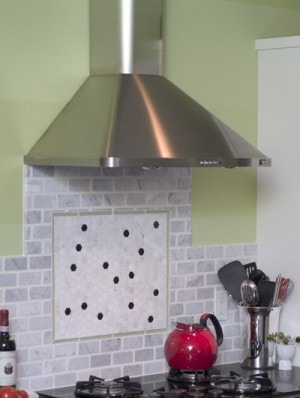A kitchen range hood also called an exhaust hood is designed to keep the air in your kitchen clean.
Installing range hood venting through floor joist alternatives.
The procedure is similar to the installation of the kitchen hood vent through the roof but it is slightly different though.
Range hoods draw smoke steam and cooking aromas from your stovetop and vent them out of the house helping to refresh the air in your kitchen.
Caulk around the seams between the vent hood and the ceiling.
Make sure the range hood you are buying is the correct size that will fit.
Install the fan the filter and the light kit.
It pulls grease smoke and particles generated when you cook out of the range area.
For other types of siding the installation steps are very similar.
Step 3 install the vent hood.
We will assume that you have vinyl siding installed on your house.
Many homeowners rely on their over the range microwaves to vent smoke and odors.
Cover the exit with a vent cap cover and caulk around the edges to help prevent leaks back into your home.
Range hoods help you to ventilate your kitchen workspace.
The most common sizes are 36in 48in and 60in.
Range hoods will vent either through the cabinets above or through the wall.
The hood is installed directly above your range extending 3 inches past the range on either side.
Detailed tutorial explaining how to position template.
Some range hoods have internal blowers that recirculate the air in the kitchen without external venting.
How to install a wall mounted black stainless steel range hood and how to properly vent to the outside.
Ventilation is particularly important for homeowners with gas stoves since it helps to dissipate gases and smoke for the sake of safety as well as grease and odors in the kitchen.
This simple installation technique can.
Installing a range hood vent through an outside wall.
Make sure that a venting range hood will vent through the right spot in the wall.










